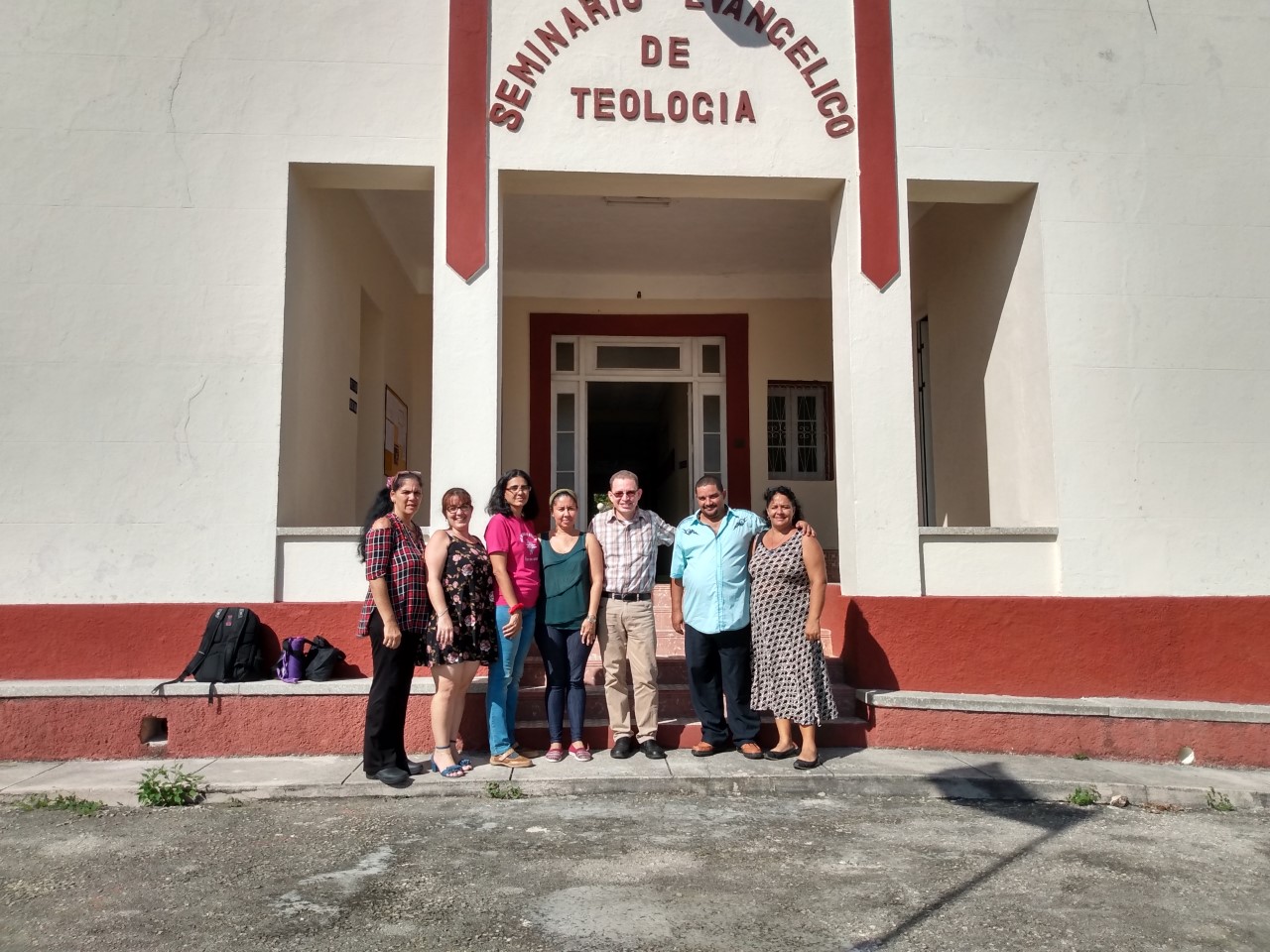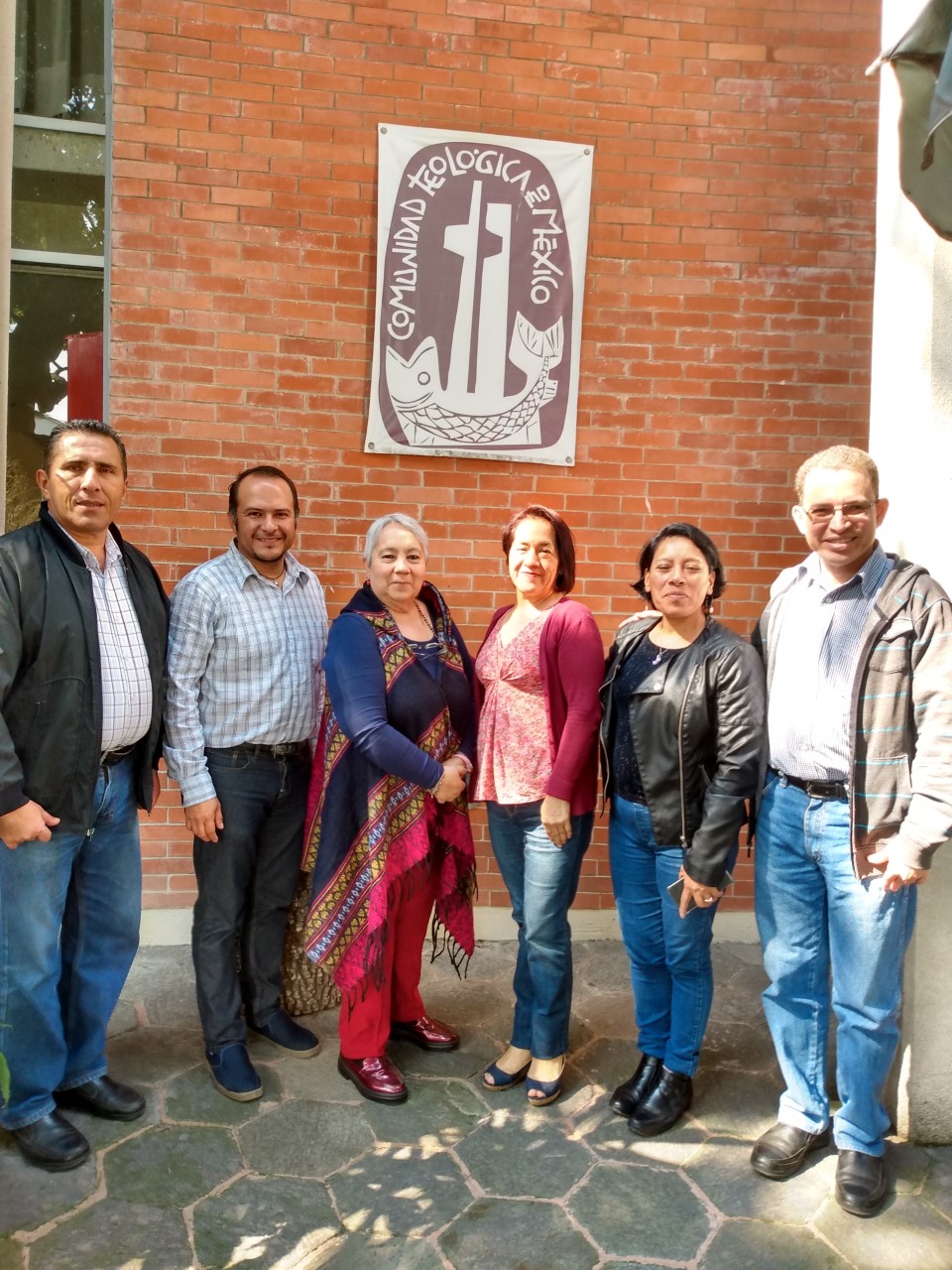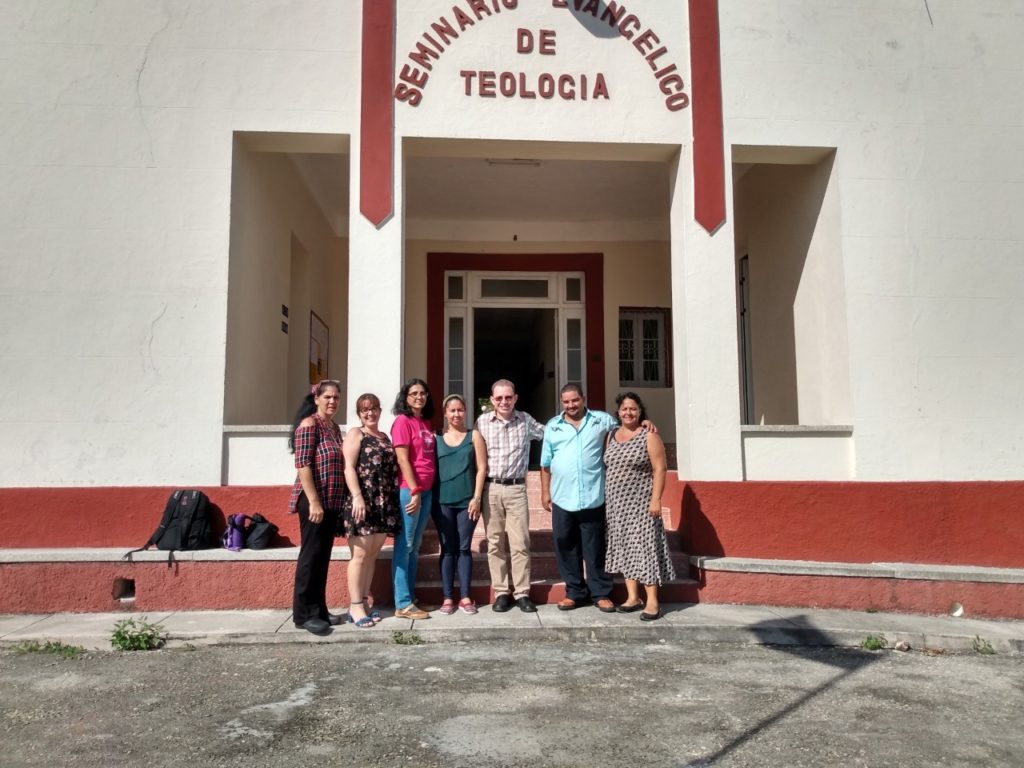Applied Hermeneutics:
A Biblical Rereading Experience in Two Contexts

During the second semester of this year, I had the privilege of sharing the Applied Hermeneutics course with emphasis on the New Testament. It was a course designed for Master of Biblical Sciences students from the Theological Community of Mexico (CTdeM). The course was intended to deepen the application of methods of reading and interpretation considering the world of text, authors, and especially readers.
Considering Hermeneutics as an art of understanding and interpretation, students entered the “world of the biblical text” from their contexts and experiences, influencing the text and its production of senses and meanings. Through the reading and interpretation exercises, they sought to make the biblical kerygma effective and relevant to their churches and communities. The exegetical work involved in the biblical text (eisegesis) with our questions, interests, and different perspectives; to come out with a new vision of life and reality, that is, with the perspective of God.
As part of the academic exchanges between the Theological Community of Mexico (CtdeM, its Spanish acronym) and the Evangelical Seminar on Theology of Matanzas in Cuba (SET), I shared this same course with a group of Master of Theology students from the SET. During October 21 to 25, we worked on a proposal for rereading New Testament texts from the context of the churches and Christian organizations in Cuba. While discerning today’s context, we sought a contextualization of the gospel message. By applying methods of community or popular reading of the Bible, we built bridges between life and biblical text (life – text – life).

Both groups (CTdeM and SET), pastors, and ecclesial leaders are committed to their churches and a holistic proposal of the church’s mission in the world. Their final projects involved the consideration of needs or problems present in their churches or communities. The questions: from what context do we read the Bible? What is our point of departure, interest, or concern? In this approach to the biblical text, the emphasis is placed on the reading community, which seeks to be enlightened by the Word of God to transform its reality. Students addressed topics of interest within their contexts: migration, gender-based violence, citizen insecurity, church political advocacy, climate change, corruption, and comprehensive mission.
The experience of sharing this course with two groups of students in two contexts (Mexico and Cuba) was challenging and very enriching. Students’ assessments are very encouraging to continue working on contextual hermeneutics. It’s worth sharing some of your comments:
“The learned methods helped us to reread from the perspective of the poorest and most vulnerable in our communities, building on their real needs.”
“The course challenges me to better prepare for service in my church and community. I have acquired new tools to interpret the Bible more carefully and responsibly, doing a reading with a liberating perspective.”
“What I learned helps me rethink what we are doing as a church. I feel challenged to continue learning and sharing from my life experience and my ministry.”
Finally, I want to thank my students for their valuable contributions in these courses, the seminars for allowing me to be part of their training processes. I also want to thank Global Ministries for facilitating this beautiful time of learning and exchanges of experiences.
Hermenéutica Aplicada:
Una experiencia de relectura bíblica en dos contextos.
 Durante el segundo semestre de este año tuve el privilegio de compartir el curso de Hermenéutica Aplicada con énfasis en Nuevo Testamento. Fue un curso diseñado para estudiantes de Maestría en Ciencias Bíblicas de la Comunidad Teológica de México (CTdeM). El curso tenía el propósito de profundizar en la aplicación de métodos de lectura e interpretación considerando el mundo del texto, de los autores y, especialmente, de los lectores y las lectoras.
Durante el segundo semestre de este año tuve el privilegio de compartir el curso de Hermenéutica Aplicada con énfasis en Nuevo Testamento. Fue un curso diseñado para estudiantes de Maestría en Ciencias Bíblicas de la Comunidad Teológica de México (CTdeM). El curso tenía el propósito de profundizar en la aplicación de métodos de lectura e interpretación considerando el mundo del texto, de los autores y, especialmente, de los lectores y las lectoras.
Considerando la Hermenéutica como un arte de comprensión e interpretación, los estudiantes entraron al “mundo del texto bíblico” desde sus contextos y vivencias, influyendo en el texto y en su producción de sentidos y significados. A través de los ejercicios de lectura e interpretación buscaron hacer eficaz y pertinente el kerigma bíblico para sus iglesias y comunidades. La labor exegética implicó entrar en el texto bíblico (eiségesis) con nuestras preguntas, intereses y distintas perspectivas; para salir con una nueva visión de la vida y la realidad, es decir, con la perspectiva de Dios.
Como parte de los intercambios académicos entre la Comunidad Teológica de México (CTdeM) y el Seminario Evangélico de Teología de Matanzas en Cuba (SET), también compartí este mismo curso con un grupo de estudiantes de Maestría en Teología del Seminario en Matanzas. En una jornada intensiva del 21 al 25 de octubre, trabajamos una propuesta de relecturas de textos del Nuevo Testamento desde el contexto que viven las iglesias y Organizaciones Cristianas en Cuba. Discerniendo los tiempos actuales, buscamos una contextualización del mensaje del Evangelio. Aplicando métodos de lectura comunitaria o popular de la Biblia construimos puentes entre la vida y el texto bíblico (vida – texto – vida).

En ambos grupos (CTdeM y SET) participan pastores, pastoras y lideres eclesiales comprometidos con sus iglesias y con una propuesta holística de la misión de la iglesia en el mundo. Sus proyectos finales implicaron considerar necesidades o problemáticas presentes en sus iglesias o comunidades. La pregunta es ¿Desde dónde leemos la Biblia? ¿Cuál es nuestro punto de partida, nuestro interés o preocupación? En este acercamiento al texto bíblico el énfasis está puesto en la comunidad lectora, que busca ser iluminada por la Palabra de Dios para transformar su realidad. Los estudiantes abordaron temas de interés dentro de sus contextos: migración, violencia de género, inseguridad ciudadana, incidencia política de la iglesia, cambio climático, corrupción y misión integral.
La experiencia de compartir este curso con dos grupos de estudiantes en dos contextos (México y Cuba) fue desafiante y muy enriquecedor. Las valoraciones por parte de los estudiantes son muy alentadoras para continuar trabajando una hermenéutica contextual. Vale la pena compartir algunos de sus comentarios:
“Los métodos aprendidos nos ayudan a realizar una relectura desde la perspectiva de los más pobres y vulnerables de nuestras comunidades, partiendo de sus necesidades reales.”
“El curso me reta a prepararme mejor para el servicio en mi iglesia y comunidad. He adquirido nuevas herramientas para interpretar la Biblia con más cuidado y responsabilidad, haciendo una lectura con perspectiva liberadora.”
“Lo aprendido me sirve para repensar lo que estamos haciendo como iglesia. Me siento desafiada para seguir aprendiendo y compartiendo desde mi experiencia de vida y mi ministerio.”
Finalmente, quiero agradecer a mis estudiantes por sus valiosos aportes en estos cursos, a los dos seminarios por permitirme ser parte de sus procesos de formación, y a Ministerios Globales por facilitar este hermoso tiempo de aprendizajes e intercambios de experiencias.
Carlos Sediles-Real serves the Theological Community of Mexico (CTdeM). His appointment is made possible by your gifts to Disciples Mission Fund, Our Church’s Wider Mission, and your special gifts.

